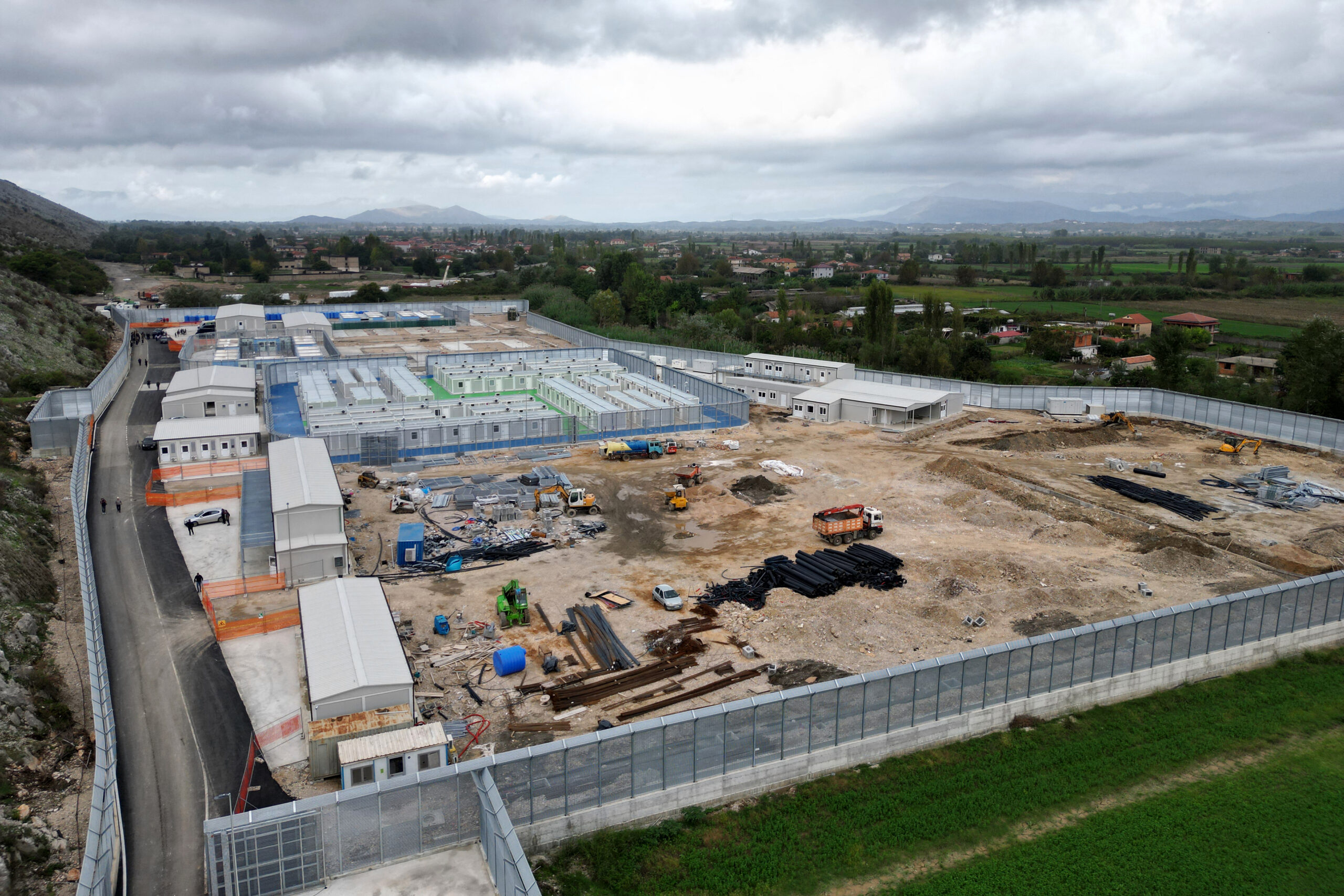Brussels – The new term of Ursula von der Leyen at the head of the European Commission begins in the sign of a new clampdown on irregular immigration. Due to the sharp shift to the right, a new formula has made inroads in European chancelleries: external hotspots — repatriation hubs outside the EU where to detain migrants awaiting answers to asylum claims. An idea circulated among member states, for which von der Leyen has now become a spokesperson: ahead of the October 17-18 European Council, the EU leader urged heads of state and government to “explore” the possibility, drawing “lessons from the Italy-Albania protocol.”
In the now customary letter on migration, with which she updates leaders on the eve of each summit, the president of the European Commission outlined ten points to “address new challenges and close remaining gaps.” First, speed up the implementation of the Migration and Asylum Pact, which was so painstakingly approved earlier this summer and on which the governments of the Netherlands and Hungary have already signaled they want an exemption. Then, “continue to sign comprehensive partnerships with key third countries:” the gold standard remains the Memorandum with Tunisia, despite countless accusations of gross human rights violations by EU-funded Tunisian security forces.
Then there is the need to “move forward on a common approach on returns,” to “accelerate the use of leverage through our visa policies,” to counter the instrumentalization of migrants, especially in the East, and to “strengthen security at our borders.” Von der Leyen also stressed the “challenges” arising from the ongoing conflicts in the Middle East and Ukraine. However, the news is the “design of innovative ways to counter illegal migration.” Von der Leyen received the controversial proposal, put forward by some 15 member states (including Italy), to create external hotspots in third countries close to EU borders, where to process asylum claims. It is ready to “reflect on operational solutions that will contribute to countering illegal immigration while respecting the principles of the EU and obligations under international law.”

To this end, the Commission will review “within the next year the concept of designated safe third countries.” The idea gaining momentum is to adopt the “Albanian model” that Prime Minister Giorgia Meloni is pioneering for the entire Union. “As the operations of the Italy-Albania protocol begin, we will also be able to learn from this practical experience,” von der Leyen specified in the letter. However, the protocol has raised many doubts and criticisms due, in particular, to the possible risk of outsourcing asylum obligations, which would be against international law.
In the draft conclusions of the leaders’ summit, which diplomats from the 27 member countries are still working on, there is already confirmation of the new step toward a “fortress Europe.” The document, which dictates the political line of the EU bloc, argues that “new ways to prevent and counter irregular migration, in line with international law, should be considered.”
Von der Leyen closed her letter to EU heads of state and government with a call for solidarity and unity in the Schengen area, which has been compromised by ongoing suspensions imposed by member countries. “The reintroduction of border controls should be a measure of last resort, exceptional, and proportionate to the identified threat. The new Schengen Borders Code, which entered into force in July, specifies the obligations of member states to respect these principles,” the EU leader warned.
English version by the Translation Service of Withub







